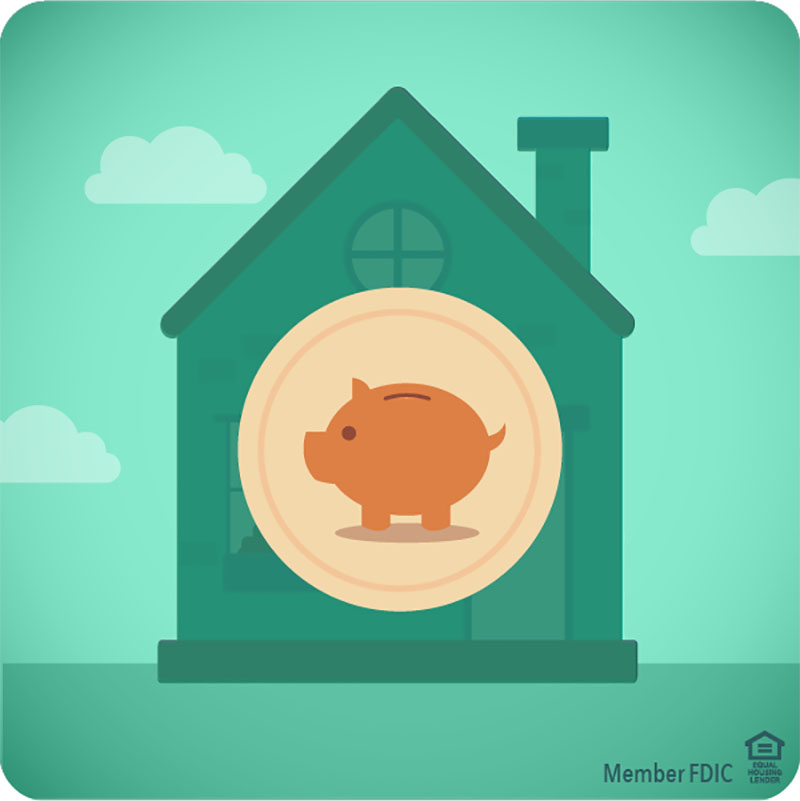FDIC-Insured - Backed by the full faith and credit of the U.S. Government
-
-
-
FNBO
MortgageJan 01 2019
-

Budgeting for Your New Home
Expenses to consider when becoming a homeowner.
So, you want to buy a house? Awesome! It’s a solid investment, interest rates are still historically low and owning a home remains part of the “American dream.”
But here’s one very important thing to consider before doing so: If you’ve always winged it when it comes to your monthly budget, now is the time to sit down, assess your finances and make a plan.
Simply put, you need to make two piles: one representing the money coming in and another that signifies what’s going out (your monthly bills). After all, once you make the decision to buy a home, there will be more items to add to the “going out” pile, so it’s wise to plan accordingly.
“Budgeting should not be a daunting task,” says Alan LaFollette, Vice President, Home Lending at FNBO. “It’s just part of the process of buying a home, and the more prepared you are for the added costs that come with buying a home, the better off you will be in the long run.
“By preparing a budget, there are no big surprises because you’ve planned ahead. It makes the entire experience much more enjoyable.”
Getting started on a budget
You’ll want to keep your mortgage payment at a certain percentage of your gross monthly income. Lenders look at your debt-to-income (DTI) ratio, which they calculate by dividing your monthly debt obligations by your pretax (or gross) income. The percentages vary, but most experts agree that your DTI ratio should fall between 40 and 45 percent.
Consider repairs, project costs
It’s hard to estimate how much money you will need for home maintenance, but a good rule of thumb is 1 to 2 percent. However, high-cost repairs are occasionally needed and can push your monthly and yearly maintenance spending beyond that.
“When you revisit your expenses annually, think about upcoming expensive projects. For instance, you may have a 20- or 30-year-old roof, or a deck that may need replacing every decade or so. Include these projected expenses in your budget in addition to the 1 percent to 2 percent for general maintenance,” says nerdwallet.com.1
Another home expense will be utilities, which may differ significantly from the utilities you may pay at a rental property.
Other things to consider for your budget
Outside of home costs, there are obviously several other expenses we face on a monthly basis: transportation, clothing, food, medical, recreation, savings and charitable gifts, to name a few.
Couples who buy a home may want to consider another major additional expense: kids.
“Life is going to happen in the years you occupy your home. Before you get married to a mortgage, look ahead and consider events that might in
crease your living expenses down the road. Guess what? Kids cost money,” says daveramsey.com. “According to the USDA, a middle-income married couple spends an average of $727 a month on non-housing expenses in a child’s first years of life. Depending on what you make or where you live, it could be more, it could be less.”2
Don’t be overwhelmed
“The important thing to remember is to not be intimidated by the home-buying process,” says FNBO’s LaFollette.
“And you won’t be when you work with a FNBO mortgage expert. We’ll walk you through every step of the process and go over the costs to help you with your budgeting and answer all of your questions. We make it an enjoyable event in your life.”
Got Questions? Stop by your local FNBO Bank branch today and visit with a mortgage loan expert.
1 “Budgeting for New Homeowners” – https://www.nerdwallet.com/blog/finance/budgeting-for-new-homeowners/#nw-toc-heading-0
2 “5 Steps to Buying a Home That Won’t Bust Your Budget” – https://www.daveramsey.com/blog/5-steps-to-buying-home-wont-bust-your-budget
The articles in this blog are for informational purposes only and not intended to provide specific advice or recommendations. When making decisions about your financial situation, consult a financial professional for advice. Articles are not regularly updated, and information may become outdated.